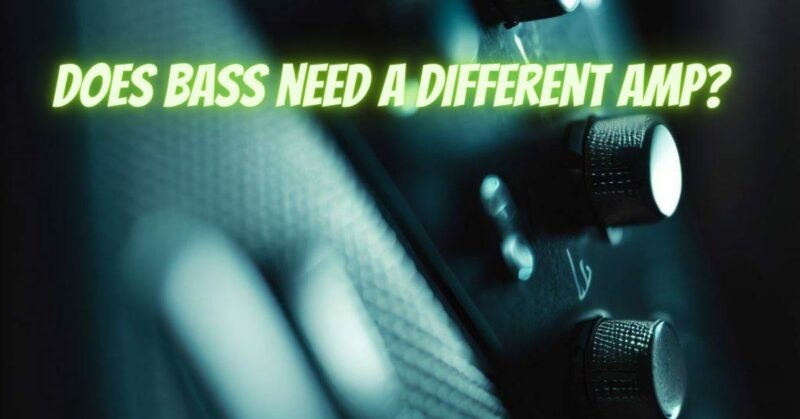When it comes to amplifying bass instruments, many musicians wonder if a dedicated bass amplifier is necessary or if they can use a regular guitar amplifier. In this article, we will delve into the reasons why bass instruments often require a specialized bass amplifier and the unique features that make them essential for achieving optimal bass performance.
- Handling Low Frequencies: Bass instruments produce lower frequencies compared to guitars and other instruments. These low frequencies require more power and specialized speaker designs to be accurately reproduced. Bass amplifiers are specifically designed to handle the unique demands of low-frequency reproduction, ensuring that the full range of bass tones is faithfully reproduced without distortion or loss of clarity.
- Power and Headroom: Bass amplifiers typically offer higher power ratings compared to guitar amplifiers. The low frequencies produced by bass instruments require more power to drive the speakers effectively. Additionally, bass amplifiers provide ample headroom, allowing for clean and undistorted bass reproduction even at higher volume levels. This headroom is crucial for maintaining the dynamics and impact of the bass sound.
- Speaker Configuration: Bass amplifiers often incorporate larger speakers or speaker cabinets with multiple drivers. These designs are optimized to handle the lower frequencies produced by bass instruments. The larger speaker cones and cabinet volumes allow for better low-end extension, improved transient response, and increased overall efficiency. This specialized speaker configuration ensures that the bass frequencies are accurately reproduced with the necessary impact and depth.
- Tone Shaping and Equalization: Bass amplifiers come equipped with tone-shaping controls tailored specifically for bass frequencies. They offer dedicated bass, midrange, and treble controls or a comprehensive equalizer section, allowing bassists to sculpt their tone and achieve the desired sound. These specialized controls enable precise shaping of the bass frequencies, enhancing the instrument’s natural characteristics and ensuring a well-balanced and focused bass tone.
- Amplifier Protection: Bass amplifiers are built to handle the unique demands of bass instruments, including the potential for low-frequency transients and extended playing sessions. They incorporate built-in protection circuitry to safeguard the amplifier and speakers from potential damage caused by excessive power demands or aggressive playing techniques. This added protection ensures the longevity and reliability of the amplifier, even under demanding bass playing conditions.
Conclusion:
While it may be tempting to use a regular guitar amplifier for bass instruments, a dedicated bass amplifier is highly recommended for optimal bass performance. The specialized design of bass amplifiers, including their ability to handle low frequencies, higher power ratings, specialized speaker configurations, tailored tone controls, and built-in protection circuitry, ensures that the unique characteristics and full potential of the bass instrument are realized. By investing in a dedicated bass amplifier, bassists can achieve the desired depth, impact, and tonal versatility, allowing their bass playing to truly shine in any musical context.

